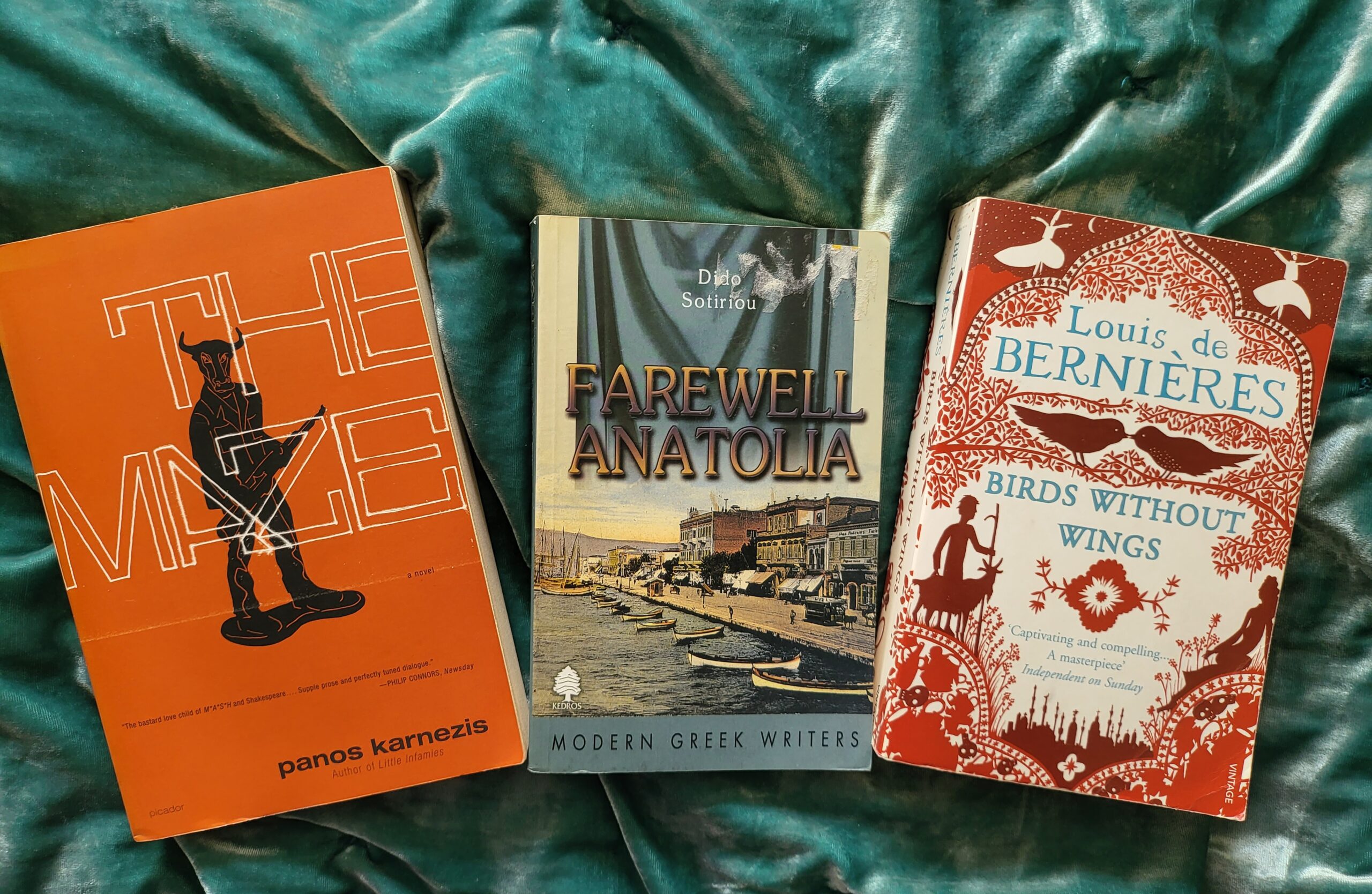100th Anniversary: Smyrna and The Great Catastrophe
 Some exquisite novels written about Anatolia and The Great Catastrophe
Some exquisite novels written about Anatolia and The Great Catastrophe
![]()
![]()
If you mix the backdrops of World Wars, an Ottoman Empire at its sunset–before night—then dawn of the modern state of Turkey, together with a fairly newly liberated nation of Greece redefining itself with strong echoes of its past calling her: Byzantium, idealized cradle of democracy, Constantinople, lands lost… with superpowers playing countries like a chessboard, all this igniting ethnic and religious strife… This and more (a historian would tell you), and you get Smyrna September 13th 1922. Not so long after the Armenian genocide.
Smyrna (now geographically Izmir) was a cosmopolitan city off the coast Asia Minor. Like so much of Anatolia and Ottoman territory, it was multi-ethnic and multi-religious. Many Greeks lived in Asia Minor. Best to read the many books and some pages devoted to what happened on this date–the city was burned, after weeks of about half a million Greeks, and Armenians, huddled on the quay after the Greek army collapsed in its reach East (murder, rape, drowning, forced labor which led to death, suicide by drowning were the lot of these many). It’s referred to in Greek as “The Great Catastrophe”. And the survivors of this tragedy would move on to form a new identity for the modern Greek state together with the forced population exchanges between Turkey and Greece soon after, most of them being Greek. The refugees of Asia Minor brought agrarian skill, middle class professions, worldliness and their own signature to the arts, that would eventually weld itself into a new Greek identity, along, of course with the poverty of uprooted lives. The most famous one you know, is probably Aristotle Onassis.
For The Funeral Singer: Vasili and his sister are refugees from Asia Minor. They both processed what happened and what it means to survive quite differently. Because, yes, one is a man, another a woman. Because of their ages. Because of what they wanted out of life before every day of their lives became Smyrna.
The Funeral Singer the artist’s book in this setting of Smyrna 1922 and Athens 1944, releases September 13th 2022. Order now. The book comes with a silk lapis lazuli book sleeve and a curated reading and arts list bookmark for the themes of this period and culture.





